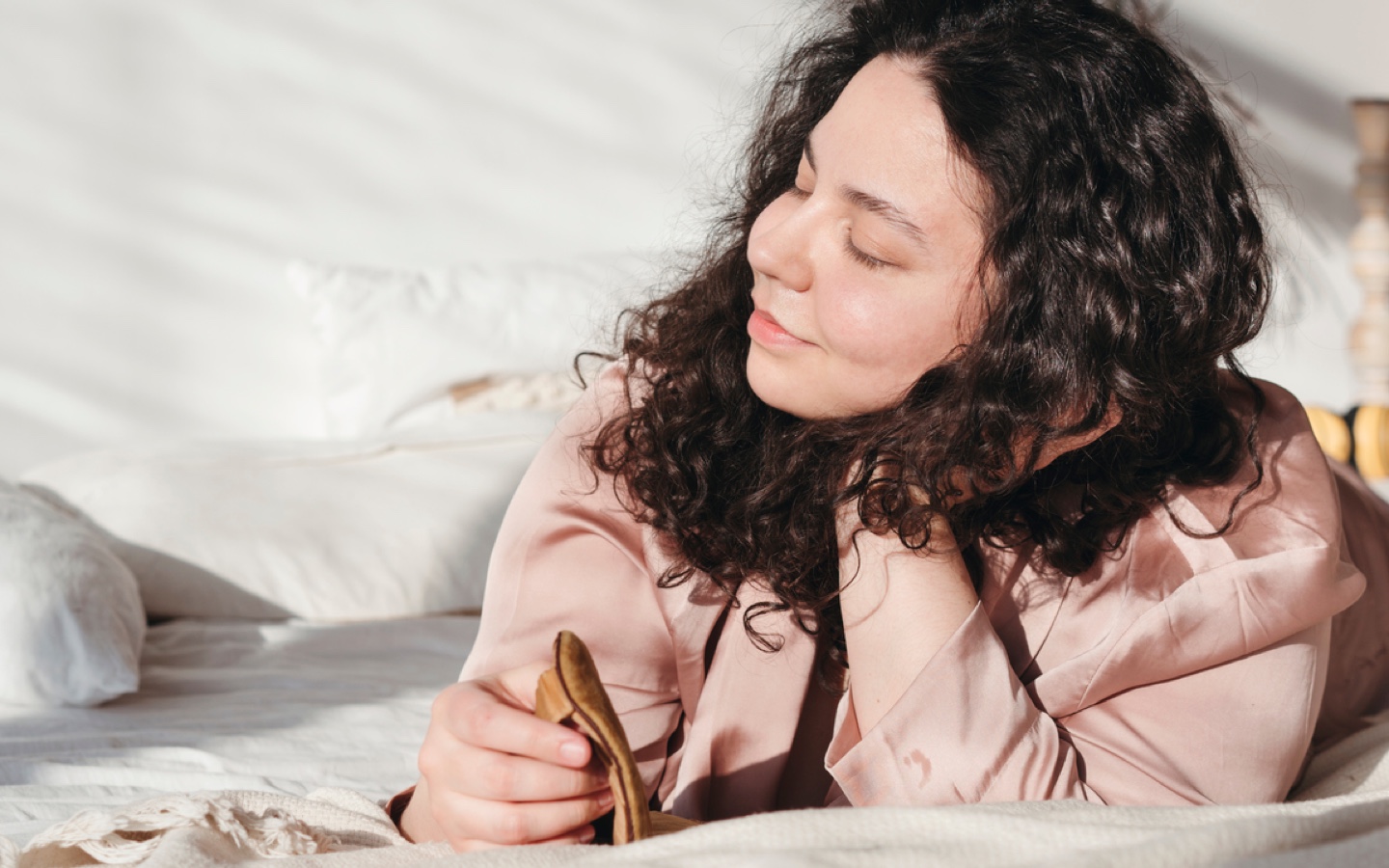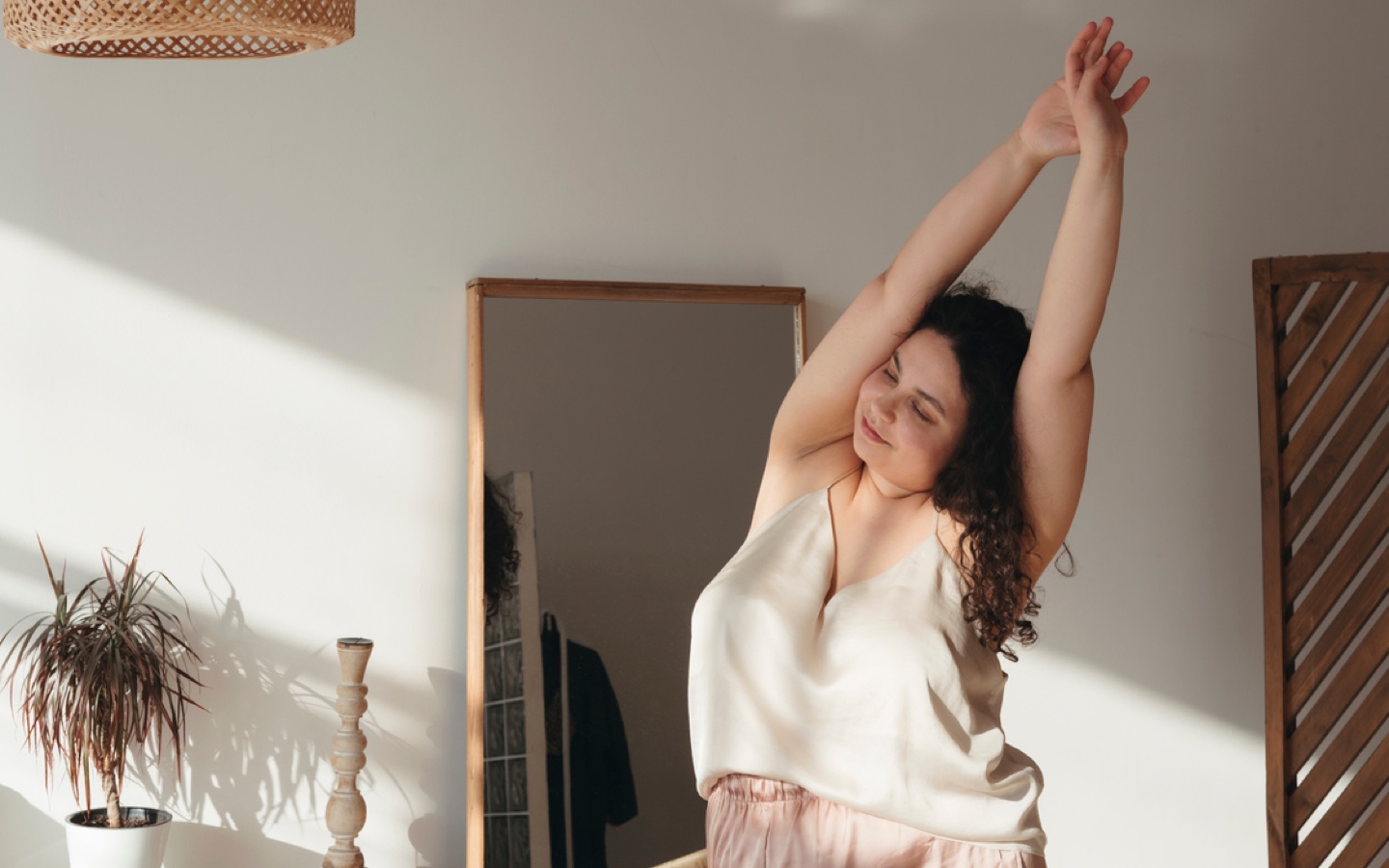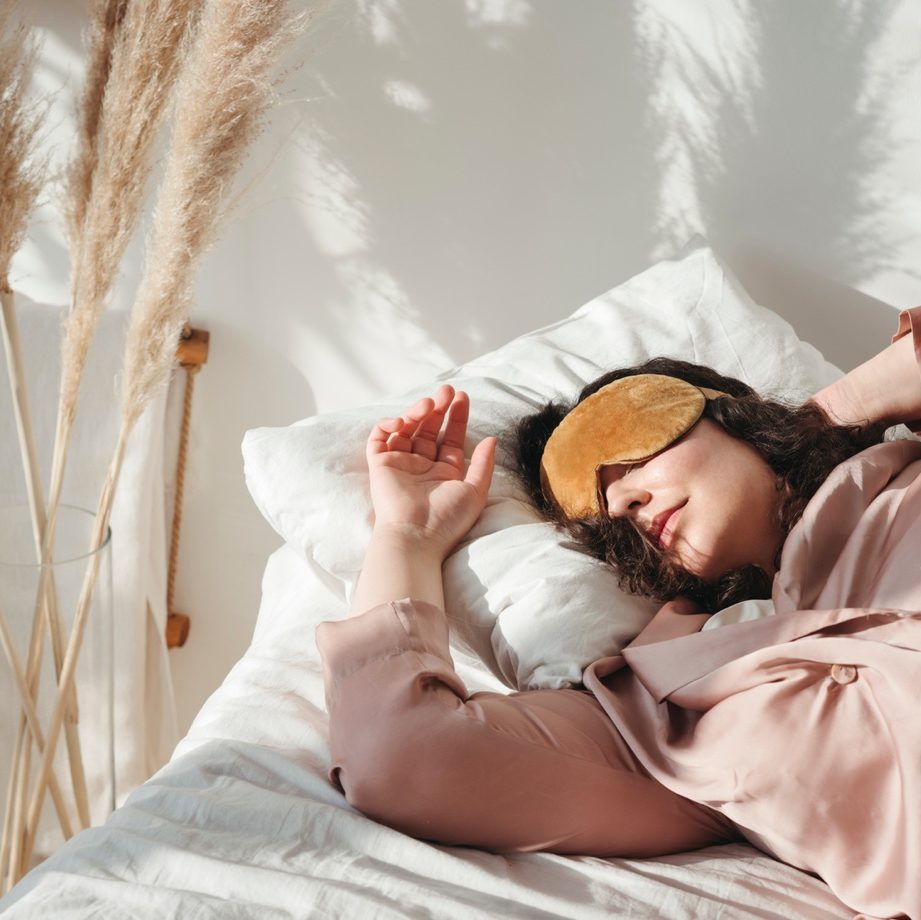Food and alcohol affect the quality of sleep. But small changes in your daily habits can help you doze off more easily and lessen your sleepless nights.
An estimated 50 to 70 million Americans suffer from sleep-related issues. Naturally, the decisions we make throughout the day can have a major effect on our quality of sleep — especially what we eat and drink.
We spoke with Dr. Jaclyn Tolentino, a senior physician at Parsley Health — the largest holistic medical practice in the U.S. — to gain some insight into the relationship between food and alcohol and a good night’s sleep.
 Dr. Jaclyn Tolentino, is a board-certified family physician and integrative and functional medicine practitioner specializing in hormone health. She has received extensive training through the Institute for Functional Medicine, and additional training in integrative oncology. A frequent contributor to publications including Well+Good, CNET, and Bustle, Dr. Tolentino has also been featured in Vogue, Headspace, and The Output by Peloton. She brings a comprehensive, whole-body approach to working with Florida and California-based patients as a Senior Doctor of the Virtual Team at Parsley Health.
Dr. Jaclyn Tolentino, is a board-certified family physician and integrative and functional medicine practitioner specializing in hormone health. She has received extensive training through the Institute for Functional Medicine, and additional training in integrative oncology. A frequent contributor to publications including Well+Good, CNET, and Bustle, Dr. Tolentino has also been featured in Vogue, Headspace, and The Output by Peloton. She brings a comprehensive, whole-body approach to working with Florida and California-based patients as a Senior Doctor of the Virtual Team at Parsley Health.
Dr. Tolentino: The quality of your diet and the timing of your meals are two factors that we know have a relationship with overall sleep quality. We don’t have a lot of robust clinical data on types of foods that support great sleep (very limited data suggests tart cherries and kiwifruit may be two specific sleep promoters), but the research that we do have suggests that the best diet to support sleep is a balanced one.
When we talk about a balanced diet, we’re talking about a diet high in complex carbohydrates, lots of vegetables and fruits, lean protein, and healthy fats. We also want to focus on achieving balance throughout the day — I often see a situation with my patients where they don’t eat much throughout the day because they’re so busy, so when they get home they’re having a pretty big meal right before bed. That’s not ideal. We really want to make sure we’re balancing our meals relatively evenly throughout the day because that’s also helping us control large blood sugar spikes and ensuring we have stable, consistent energy from the time we wake up all the way to bedtime.
Dr. Tolentino: When I have a patient who is experiencing sleep issues, one of the things we’re going to take a look at is their last meal of the day — the last thing they eat before bedtime. We do that because our dinner (or our late night snacks) have the biggest impact on how we sleep at night.
We want to be really thoughtful about our evening meal because we’re not trying to fuel ourselves up for the day; instead, we’re trying to give our body the fuel it needs for a good night of sleep. That means being really thoughtful about the composition of our evening meals, as well as how we time them. Eating too early, too late, too much, or too little are all things that can have an impact on how restful our sleep will be.
Dr. Tolentino: That’s really going to depend on your lifestyle, but I generally encourage my patients to avoid eating too early or too late. Our bodies begin secreting melatonin, the “sleep hormone,” around the time that the sun sets — which is why a bedtime between 9 pm and 10 pm is ideal for a lot of people.
If you’re aiming to be in bed at that time, you want to try to eat dinner around 6 or 7 pm. That gives your body some time to settle after a meal as digestion is an active process, but it’s not so early that you’ll experience a blood sugar drop in the middle of the night and wake up. About three hours before bed is a good general goal, although that will vary depending on your specific lifestyle.

Read More: How Sleep Affects Your Health
Dr. Tolentino: For the final meal of the day, I like a balance of lean proteins, healthy fats, and slow-release, fiber-rich vegetables. Slow-release, high-fiber foods take longer for our bodies to digest, which means they keep us feeling full for a longer period of time. Lean proteins and healthy fats can also encourage feelings of satiety and fullness, but we want to make sure to not go overboard on either — fats and proteins are harder for the body to digest, and very rich meals can also leave us feeling uncomfortably full right before bed.
The perfect dinner for a good night of sleep might involve foods like butternut squash, sweet potato, lentils, wild-caught fish, or grass-fed meats — all combined on a balanced plate. These items are not difficult to digest but will leave us feeling full throughout the night. This is very important because if our body senses that we’re experiencing hunger during the night, it will send signals to our brain to wake us up.
Dr. Tolentino: Highly processed carbohydrates, sugar, caffeine, and alcohol should all generally be avoided if you’re trying to get a full, restful night of sleep. Sugar and carbohydrates are too stimulating before bed, and caffeine and alcohol can seriously disrupt sleep. Caffeine can make it more difficult to fall asleep. And while alcohol may deceptively appear to help us fall asleep more quickly, it can actually impact the overall quality of our sleep by disrupting the restorative REM sleep we need to feel well-rested when we wake up.
Dr. Tolentino: Alcohol can have a very negative effect on our sleep quality. Alcohol is a sedative, which means initially it may appear to help us fall asleep more quickly, but it’s very disruptive to the overall quality of our sleep. Alcohol can also impact our body’s ability to cycle into the REM stage of sleep, which is the restorative phase in our sleep cycle that we need to feel well-rested when we wake up in the morning. Alcohol can also be disruptive to our breathing when we sleep, another factor that can contribute to waking up several times throughout the night.

Read More: How to Sleep Better
Dr. Tolentino: That really depends on the individual; for lots of people, one drink is obviously going to have way less of an impact than multiple drinks — and binge drinking, in particular, can be extremely detrimental to your sleep. But for individuals who are particularly sensitive to alcohol, even one drink can be disruptive and contribute to a poor night of sleep.
Dr. Tolentino: If you’re going to have something like a glass of wine before dinner, I strongly recommend having your last drink several hours before bed. And if you’re trying to get a restful night of sleep, you might want to consider limiting your consumption to one to two drinks.
Dr. Tolentino: Before we even start approaching the topic of supplements like melatonin, my number one piece of advice to my patients having trouble sleeping is to start implementing a good sleep hygiene routine. It’s one of the best things you can do for your overall health and wellness.
A good sleep hygiene routine means creating the best possible conditions to help your body relax and prepare for a good night of sleep. That definitely means having a sleep-supportive evening meal, but it also means small things like starting to dim the lights in your space in the early evening to start putting your brain in that relaxing mindset.
About an hour before bed, you can really start implementing a solid pre-bedtime routine; doing a little gentle stretching or meditation, engaging in a self-care practice like your evening skincare routine, and most importantly — unplugging from your devices! All of these small things can actually make a big impact on how quickly we fall asleep at night, and our ability to sleep soundly through the night and wake up refreshed in the morning.

Read More: The Therapeutic Pillow Spray Your Sleep Routine is Missing
Follow @drjaclyntolentino and @parsleyhealth for more holistic health and wellness information.

Shop Pillows
The Essential Organic Pillow Collection
Gentle, breathable, non-toxic support.





